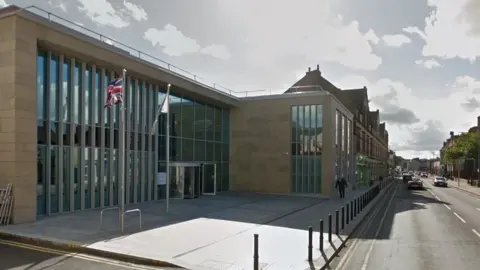Cumbria council merger proposals 'dead in the water' claim
 Google
GooglePlans to replace a county council and six district councils in Cumbria with a unitary authority are "dead in the water", according to the mayor of one of the areas involved.
Copeland's elected mayor, Mike Starkie, said support was growing for a combined authority instead.
The districts would "never agree" to a unitary body, he said.
MPs and councillors have warned the county is too large and the population too spread out for it to work.
The unitary plan had been suggested by Cumbria County Council leader Stewart Young as a replacement for the current two-tier - county plus districts - system.
He asked Communities Secretary James Brokenshire to open negotiations but talks stalled when it emerged all six district councils would have to unanimously agree.
Allerdale council leader Alan Smith has now written to Mr Brokenshire on behalf of Mr Starkie and the district council leaders, warning of "protracted arguments over models of governance".
'Almost anything' better
MPs Trudy Harrison, Tim Farron and Sue Hayman have also expressed reservations to Mr Brokenshire.
MP Rory Stewart said he preferred two authorities because of the county's size but would accept a single unitary or a combined authority.
But "almost anything" would be better than the "confusing" and "inefficient" system of seven councils, he said.
A unitary authority would replace Allerdale, Carlisle, Copeland, Barrow, Eden and South Lakeland district councils, along with the county council too.
With a combined authority the county council would go, and its services would be devolved to the districts, the Local Democracy Reporting Service said.
An elected mayor would deal with highways while health, social care and housing would be taken out of local authority control.
Emergency services would fall under the remit of the police and crime commissioner.
It has been estimated that savings of £28.3m a year could be made with one unitary authority, or £16.8m with two.
